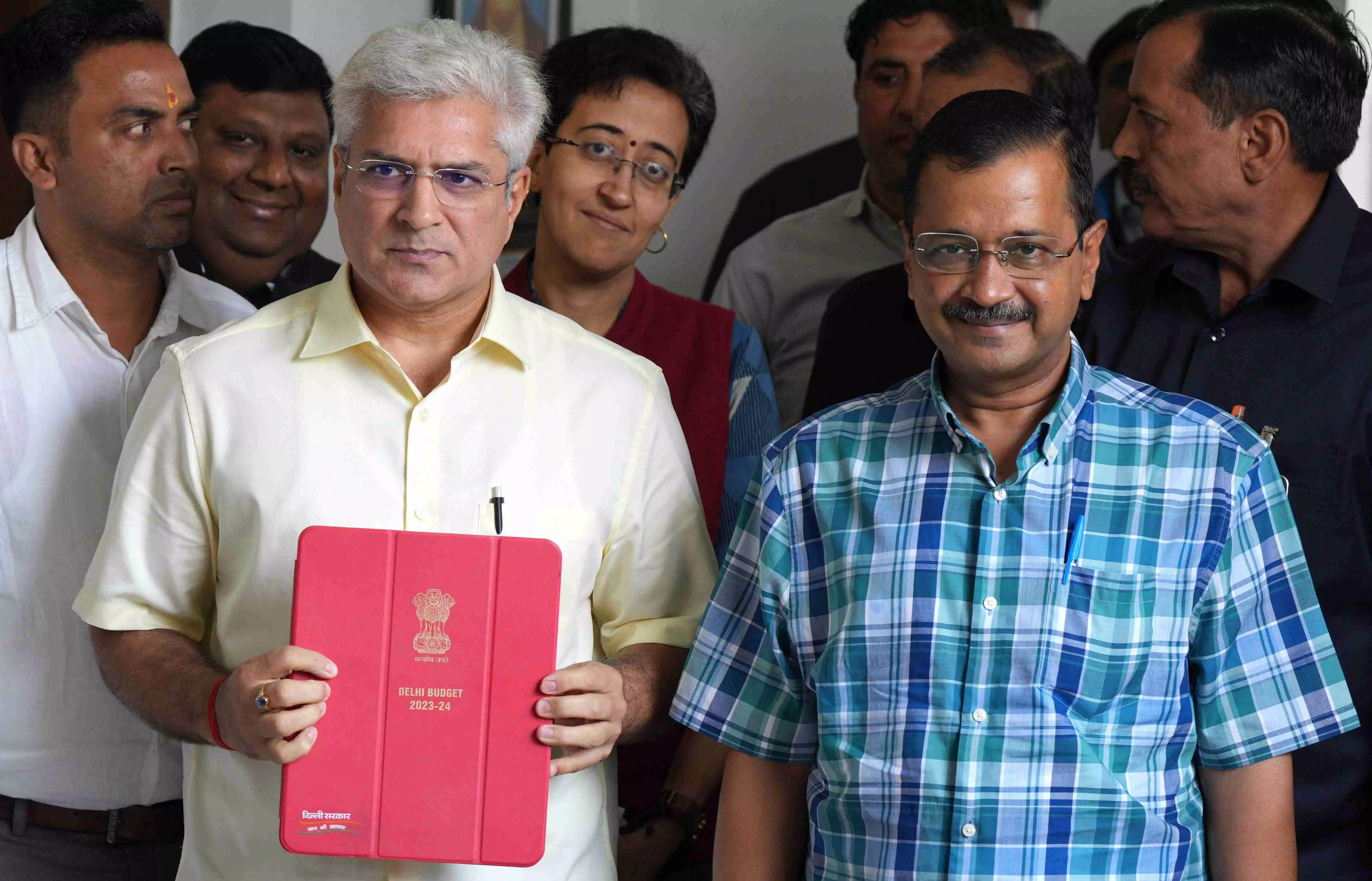A pioneering budget
Delhi government’s budget for FY2023-24 presents a ground-breaking plan for creating a greener, smarter, and healthier city where residents could live a quality life

The Delhi Government's budget for the fiscal year 2023-24 emerges as a transformative blueprint for the capital's sustainable development. Under the leadership of Chief Minister Arvind Kejriwal, the budget charts a greener, smarter, and healthier Delhi, showcasing significant investments in environment, infrastructure, education, and healthcare.
Progressive vision
The primary focus of this year's budget is to transform Delhi into a cleaner, more beautiful, and modern city. This vision is reflected in the nine ambitious schemes under the "CLEAN, BEAUTIFUL AND MODERN DELHI" theme. The government's commitment to reducing pollution and promoting sustainable development is evident in various initiatives, including the induction of electric buses, upgrading and beautifying the PWD road network, and the Clean Yamuna Initiative.
Sustainable transportation and environmental initiatives
One of the key aspects of this pioneering budget is the emphasis on sustainable transportation. The government plans to introduce 1,600 zero-emission electric buses next year, with a goal of having 8,280 electric buses by 2025. This initiative marks a significant shift towards eco-friendly public transport, reducing air pollution and contributing to a healthier environment for Delhi's residents.
The upgrading and beautification of 1,400 km of the PWD road network is another essential initiative aimed at improving the city's infrastructure and aesthetics. This massive project, with an estimated expenditure of Rs 20,000 crore over ten years, is unprecedented in Delhi's history and perhaps any Indian city.
The six-point action plan for cleaning the Yamuna River is another critical environmental initiative. This plan includes expanding the sewer network, doubling the number of unauthorised colonies connected to the sewer network, and significantly increasing sewage treatment capacity. Through this comprehensive approach, the government demonstrates its determination to preserve Delhi's natural resources and improve the quality of life for its residents.
Education and skill development
The budget shines a spotlight on Delhi's educational transformation, allocating Rs 16,575 crore to this vital sector. The government plans to expand Dr. Ambedkar Schools of Specialised Excellence, providing students with opportunities to excel in various fields such as science, technology, engineering, and mathematics (STEM), humanities, performing arts, and high-end 21st-century skills.
Collaboration between schools and industries for skill development is another noteworthy initiative. By partnering with industry experts, the government aims to provide children with practical knowledge and professional skills to prepare them for the job market.
The provision of tablets to educators and administrative staff is an additional measure to improve the quality of education. This step will enable teachers to access digital resources and enhance their teaching methods, ensuring students receive a modern and high-quality education.
Accessible and quality healthcare
The budget allocates Rs 9,742 crore to the health sector, emphasising the government's focus on the well-being of its people. The plan to increase the number of Mahila Mohalla Clinics, free testing facilities, and expanding hospital capacity demonstrates the commitment to providing accessible and quality healthcare to all residents.
The construction of nine new hospitals and the expansion of existing ones further solidify the government's commitment to improving the city's healthcare infrastructure. The government also aims to increase the number of beds available for patients in government hospitals, ensuring that every citizen has access to adequate healthcare services.
Revamping water supply and management
The Delhi Jal Board's initiatives, such as providing water pipelines and connections to every house, ensuring 24-hour water availability, increasing water supply, and reviving 20 big lakes across the city, demonstrate the government's resolve to address water scarcity and improve the quality of life for its citizens. These measures will not only ensure that every household has access to clean water but also contribute to the preservation and management of the city's water resources.
In addition to these initiatives, the government aims to collaborate with the Municipal Corporation of Delhi (MCD) to eliminate three major landfill sites within the next two years. This effort addresses a long-standing environmental and public health issue and showcases how different levels of government can work together to bring about positive change.
A promising future
In summary, the Delhi Government's budget for 2023-24 is a ground-breaking plan for creating a greener, smarter, and healthier capital. Through its comprehensive and forward-looking approach, this budget sets the stage for sustainable development, ultimately improving the quality of life for all citizens of Delhi.
The ambitious initiatives in sustainable transportation, infrastructure, education, healthcare, and water management demonstrate the government's dedication towards addressing the city's most pressing challenges. As the capital embarks on this transformative journey, it is poised to become a shining example for other cities in India and around the world.
With Chief Minister Arvind Kejriwal at the helm, Delhi is well on its way to achieving its vision of becoming a world-class city. This pioneering budget for 2023-24 serves as a testament to the government's commitment to ensuring a brighter, greener, and healthier future for all Delhiites.
The writer is an independent researcher. Views expressed are personal



